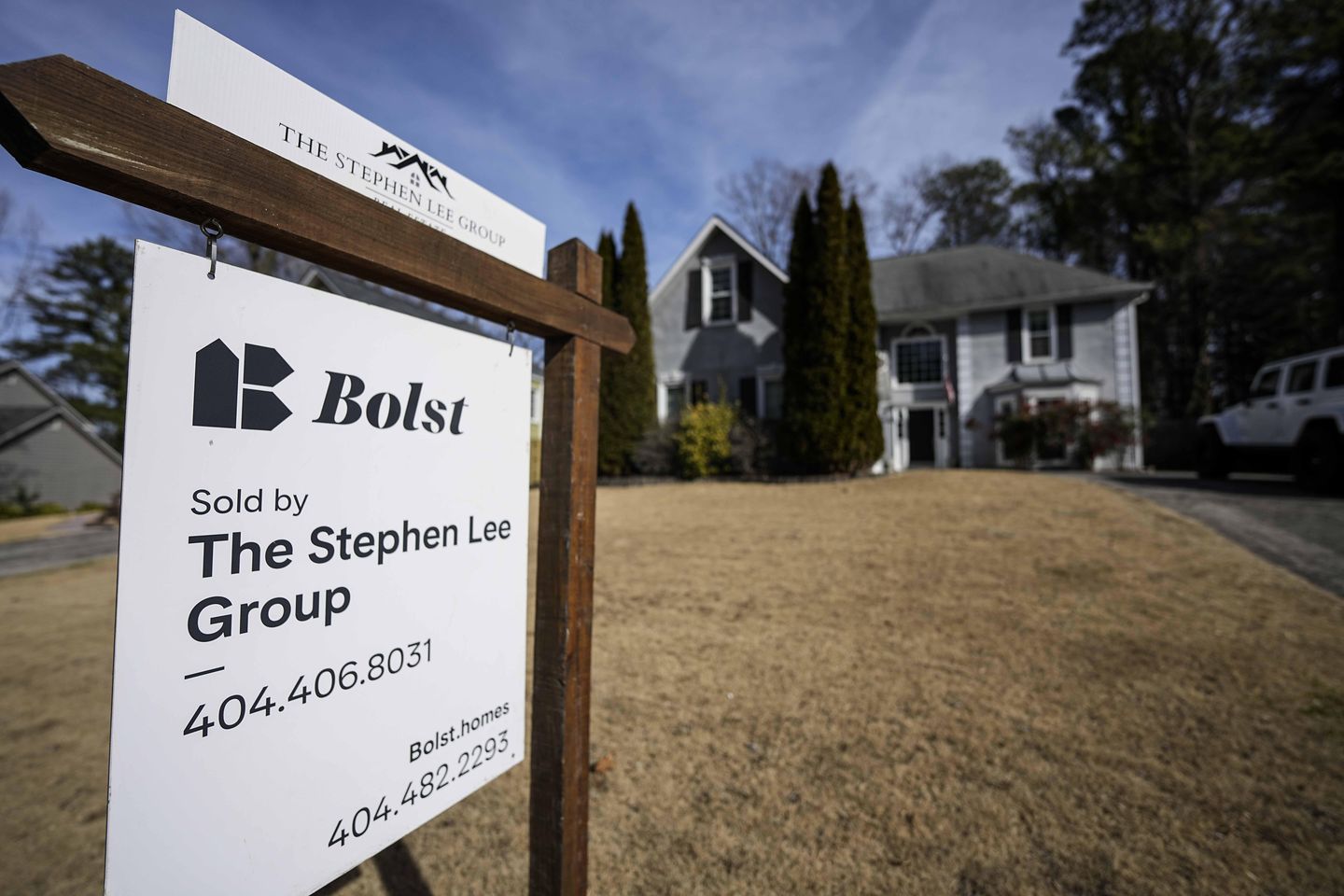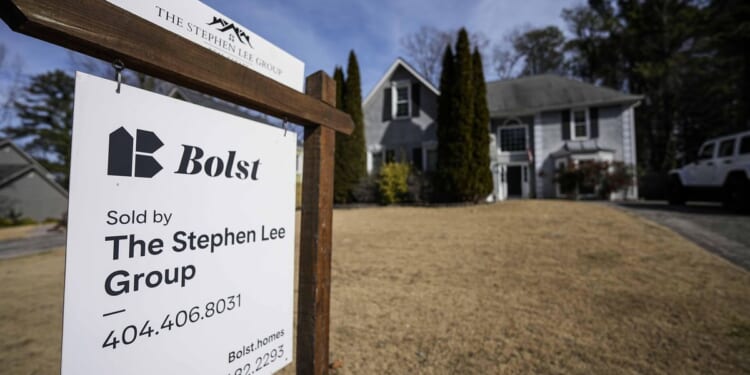
LOS ANGELES — Sales of previously occupied U.S. homes rose in January as homebuyers were encouraged by easing mortgage rates and a modest pickup in properties on the market.
Existing home sales rose 3.1% last month from December to a seasonally adjusted annual rate of 4 million, the National Association of Realtors said Thursday. That’s the strongest sales pace since August and is slightly higher than the 3.98 million sales pace economists were expecting, according to FactSet.
The modest sales increase is an encouraging start for the housing market, which has been mired in a slump the past two years. Still, compared with January 2023, sales fell 1.7%. Existing home sales sank to a nearly 30-year low last year, tumbling 18.7% from 2022.
“While home sales remain sizably lower than a couple of years ago, January’s monthly gain is the start of more supply and demand,” said Lawrence Yun, the NAR’s chief economist.
The pickup in sales helped push up home prices compared with a year earlier for the seventh month in a row. The national median sales price rose 5.1% from January last year to $379,100. That’s the highest median sales price for January on records going back to 1999.
For the first time in 14 months, the median home sales price outpaced the 4.5% annual gain in U.S. wage growth recorded in January.
“It’s unhealthy, we don’t want to see it, but its a testament to the housing shortage we’re facing in America,” Yun said.
Competition for relatively few homes on the market and elevated mortgage rates have limited house hunters’ buying power on top of years of soaring prices. That dynamic has helped keep home prices mostly rising despite weak home sales.
The cost of financing a home has largely come down from its most recent peak in late October, when the average rate on a 30-year mortgage hit a 23-year high of 7.79%, according to mortgage buyer Freddie Mac. But rates have been rising in recent weeks, with the average rate climbing this week to 6.90%, the highest level since mid-December.
“This is going to definitely impact the affordability for many people out there in the market place,” Yun said. “So, it’s not good news.”
Homebuyers who could afford to sidestep mortgage rates altogether increasingly did so last month. Some 32% of the homes purchased last month were bought entirely with cash, the highest share in nearly 10 years, Yun noted.
First-time homebuyers who don’t have any home equity to put toward their down payment continued to have a tough time getting into the housing market. They accounted for just 28% of all homes sold last month. They’ve made up 40% of sales historically.
A modest increase in the number of homes on the market helped lift sales. At the end of December, there were 1.01 million homes on the market, the NAR said. While that’s a 3.1% increase from a year earlier, the number of available homes remains well below the monthly historical average of about 2.25 million.
The available inventory at the end of January amounted to a 3-month supply, going by the current sales pace. That’s up 2% from the previous month and 3.1% January last year. In a more balanced market between buyers and sellers, there is a 4- to 6-month supply.
While more homes typically hit the market in the spring, many homeowners that have locked in a mortgage rate well below where rates are today may opt to stay put rather than give up their rock-bottom rates. Some two-thirds of U.S. homes have a mortgage with a rate under 4% and more than 90% have a rate below 6%.












